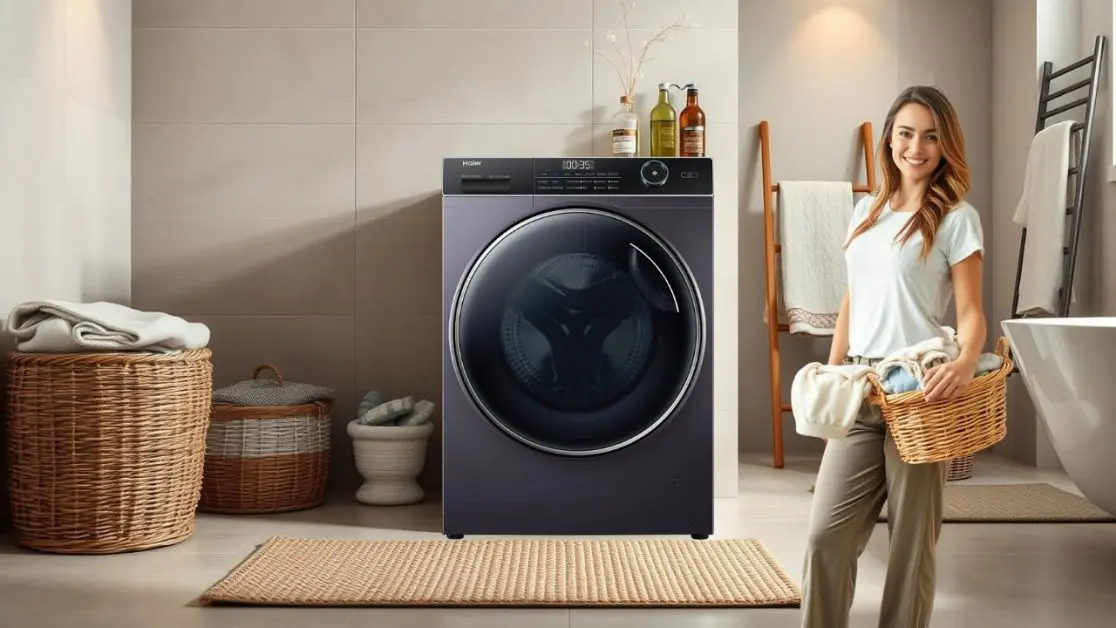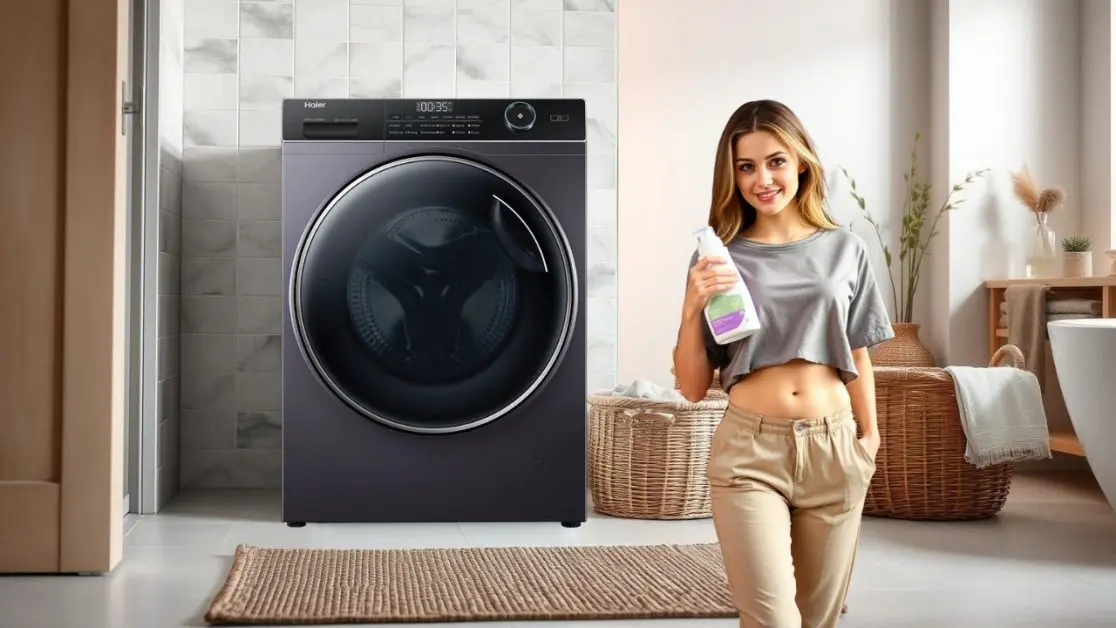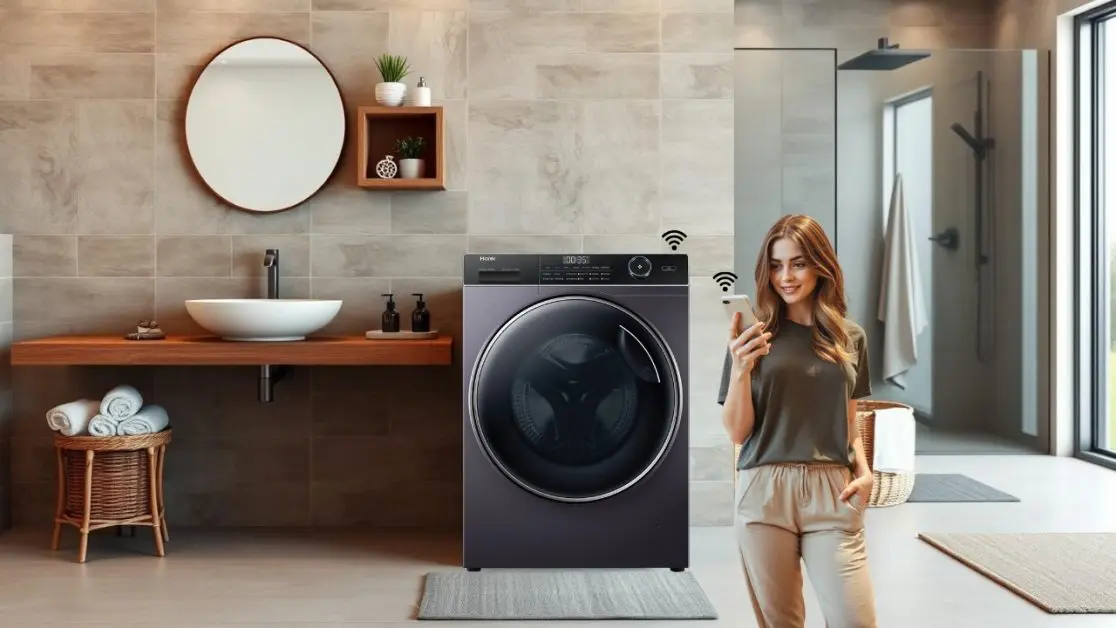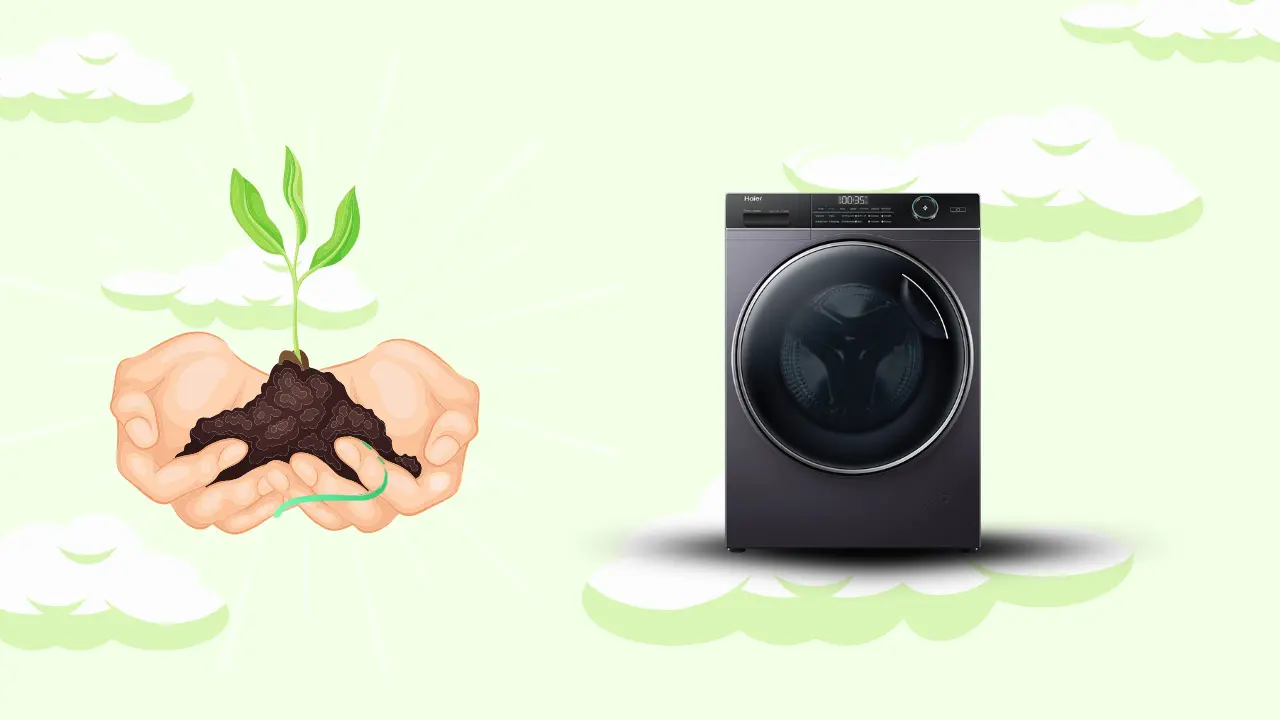Are you still using an outdated washing machine? If yes, It’s time you upgraded not just for productivity, but also because it will save you money.
In numerous Indian households, washing machines are believed to last until they completely break down. Older washing machines tend to be very energy inefficient. They go through water like there’s no tomorrow, and when washing clothes, they grab microfibres that get trapped inside the fabric, adding to the pollution problem in rivers and oceans.
This however, is not an issue with modern washing machines. New smart washing machines boast state of the art technology that greatly reduces the amount of money and time needed from the user, as well as lessening the degradation to the environment.
Technology moves fast, and it is clear with the leaps made in modern machine development. The list of features is endless, but the most prominent is the beneficial consumption of water, electricity, and money.
1. Energy Consumption

Old washing machines are power-hungry beasts. Unlike today’s advanced models, they lack direct motion motor technology, which means more friction, more vibration, and a whole lot of energy waste.
Models like the 8Kg and 9Kg Direct Motion washers come with inverter motors that cut down energy usage by using only the power needed for the specific load. It’s an intelligent way to wash clothes without wasting electricity.
Why This Matters:
- High electricity consumption increases carbon emissions.
- Leads to higher electricity bills.
- Puts more pressure on India’s power grid, especially during peak hours.
Fact Check:
- Older machines can consume up to 40% more electricity compared to modern direct motion models.
- Energy-efficient washers can save around ₹2,000–₹3,000 annually in electricity costs alone.
2. Water Wastage
A regular wash cycle in a traditional machine might use anywhere between 120 to 150 litres of water. Multiply that by several cycles per week, and the numbers are staggering. In a country like India, where water scarcity is a serious concern in many regions, this becomes an environmental red flag.
New-age machines like 7Kg and 8Kg smart front-load washers are engineered for optimal water usage. The sensors calculate exactly how much water is needed based on the load. No excess, no waste.
The Water Truth:
- Legacy machines often do not have load sensors.
- Modern washers use up to 50% less water per cycle.
- Smart water management helps reduce household water bills.
3. Microfibre Pollution

Every time clothes are washed, they shed tiny synthetic fibres. These microfibres flow into wastewater and often end up in rivers, lakes, and eventually, the ocean. Older washing machines have limited filtration systems, meaning more fibres escape during every wash.
Modern washing machines incorporate smoother drum designs and high-speed cycles that reduce the amount of shedding. This contributes to lesser fibre pollution.
Why It’s Concerning:
- Microfibres contribute to the growing problem of microplastic pollution.
- Harmful to aquatic life and, by extension, human health.
- A single load can release up to 700,000 fibres into the water system.
4. Poor Wash Quality Leads to More Wash Cycles
Old machines often fail to clean clothes properly in one go. That leads to repeat cycles, more water, more electricity, and more detergent, all of which adds to environmental degradation.
By contrast, new smart washing machines come with settings that auto-adjust wash settings based on fabric type and load size. This ensures clean clothes in one cycle, reducing resource use.
Quick Look at Features:
| Feature | Benefit |
| Direct Motion Motor | Lower vibration, higher efficiency |
| Wash Programs | Automatically adjusts time, water, and detergent |
| Wi-Fi Smart Control | Operate machine remotely and track usage |
5. Maintenance & Durability: Frequent Repairs = More Waste
Old machines break down more often, and spare parts for discontinued models are hard to find. Eventually, most of these machines are discarded, adding to e-waste, which India is already struggling to manage.
In contrast, smart washing machines like the HW110-DM14959CS8U1 come with a 20-year motor warranty and 5 years of comprehensive coverage. This means less likelihood of breakdown, fewer parts needed, and a longer lifespan.
E-Waste Reality:
- India generates over 3.2 million metric tonnes of e-waste annually.
- Washing machines are among the top discarded appliances.
- Durable machines reduce landfill pressure and manufacturing pollution.
6. Detergent Overuse

Older machines are less efficient with detergent mixing. The result? Overuse of soap and fabric softeners, which not only affects the environment but also ruins fabrics over time.
Newer models ensure thorough mixing of detergent through advanced water flow technology. This results in cleaner clothes and lesser need for re-washing or over-pouring soap.
Summary: What Old Machines Are Really Costing
Let’s recap the environmental impact of outdated washing machines:
- Higher electricity use = More carbon footprint
- Excessive water use = Worsening water scarcity
- Microfibre pollution = Microplastic crisis
- Repeat washes = More detergent, more waste
- Frequent breakdowns = Growing e-waste problem
And this isn’t just about the environment. It hits the pocket as well. Rising electricity and water bills, frequent maintenance, and early replacements can all add up fast.
The Smarter Choice: Technology That Works for You & the Planet

Switching to a newer model isn’t just about convenience. It’s a conscious move toward sustainable living. Haier’s range of smart front-load washing machines are designed with exactly that in mind.
With features like Direct Motion Motors, AI-enabled cycles, Wi-Fi connectivity, and extended warranties, these appliances blend performance with responsibility.
Some key highlights from smart washing machine line-up:
- Direct Motion Motor for enhanced energy efficiency and reduced noise
- Up to 20 years motor warranty, ensuring long-term use
- Water-efficient design with automatic load sensing
- Smart Wi-Fi control for flexibility and convenience
- Free installation and EMI options available across models
It’s Time to Rethink What’s in the Laundry Room
The environmental cost of holding on to an outdated washing machine goes far beyond just a bit of extra noise or slower spin cycles. It’s about waste, of water, energy, money, and materials. In a time where sustainable living is becoming a necessity, upgrading to an energy-efficient washing machine is one of the simplest ways to make a real difference.
And if the decision to replace an old washer is on the table, choosing from Haier’s smart washing machine collection is a practical step in the right direction. Designed for today’s needs and tomorrow’s planet, these appliances strike the right balance between performance, cost-efficiency, and sustainability.
Explore Haier India’s smart front-load washing machines today and bring home a future-ready appliance that cares for your clothes, and the planet.

